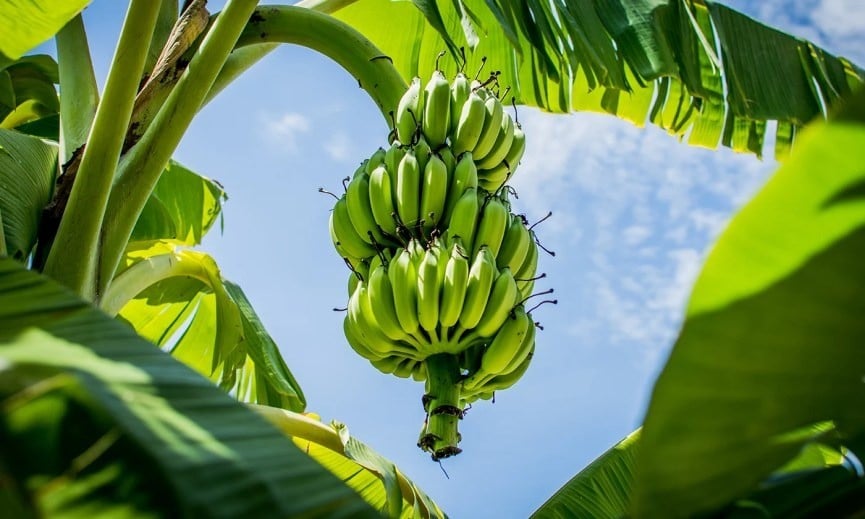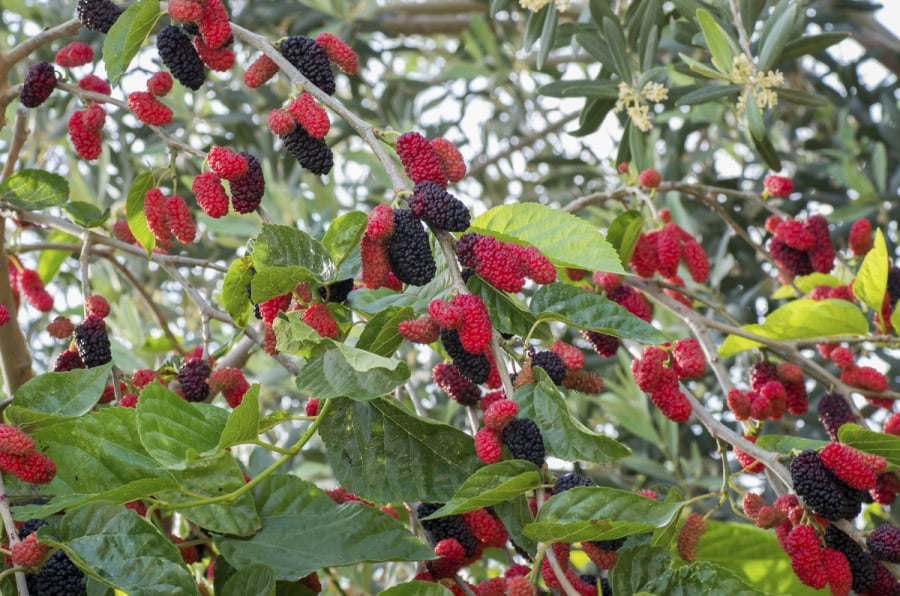For generations, the Vietnamese have believed that trees provide not just shade and food but also hold spiritual and feng shui significance. The elders used to advise, “Planting a tree is planting fortune, keeping a tree is keeping prosperity.” In the gardens of ancient families, there were three types of trees that, once rooted, should never be cut down – as they are believed to bring good fortune, ward off calamities, and attract luck.
Below are three common yet profoundly meaningful trees that every family should carefully tend to.
1. Banana Tree – Leaves Bring Fortune, Trunk Brings Wellbeing
Beyond its ubiquitous presence in rural life, the banana tree is a highly regarded feng shui symbol by the ancients. The large, spreading leaves resemble open hands, inviting prosperity and peace. In traditional beliefs, planting bananas behind the house serves as a “screen” to guard against misfortune and protect the family.
Despite its familiarity, the banana tree should not be planted haphazardly. Wealthy families often avoid planting bananas in front of their homes, fearing that the tree might block positive energy and hinder fortune. Instead, the ideal location is at the back or side of the house, both feng shui-friendly and convenient for care.

Beyond its spiritual significance, the banana tree is a “treasure trove” in cuisine and daily life: banana flowers are used in salads, fruits are a rich source of potassium, leaves are used for wrapping cakes, and the trunk provides animal feed. For less fortunate families, the banana tree symbolizes resilience, proliferation, and abundance.
2. Star Fruit Tree – Giving and Receiving, Sustaining Long-lasting Blessings
Closely associated with the folk tale “Eating Star Fruit, Repaying with Gold,” the star fruit tree has long been considered a symbol of justice and karma. In folk culture, having a star fruit tree in one’s garden represents nurturing and sharing, thereby accumulating blessings for future generations.
Many elders believe that families who preserve ancient star fruit trees, especially those deeply rooted over generations, will enjoy peaceful family lives, with successful and academically accomplished offspring. The star fruit tree also serves as a “witness” to the family’s sustainable development.
Star fruit is not just spiritually significant but also highly useful. The fruit can be made into delicious sweet and sour dishes or refreshing juices, while the leaves, flowers, and roots are used in traditional medicine to reduce fever, fight inflammation, and treat coughs. Thus, the star fruit tree is a “multipurpose” plant, valued for both its material benefits and its embodiment of moral principles.
3. Mulberry Tree – Balancing Yin and Yang, Preserving Family Harmony
Often underrated for its aesthetic value, the mulberry tree is rarely chosen as an ornamental plant. However, in Eastern philosophy, the mulberry tree is believed to possess special powers to expel evil spirits and balance yin and yang energies within a home.

In feng shui, the mulberry tree is thought to dispel negative energy and neutralize harmful forces, especially when planted in the northeast direction or in front of the house. For families facing challenges and financial instability, the mulberry tree acts as an invisible shield, protecting their livelihood and preserving harmony.
Beyond its spiritual significance, the mulberry tree is also a valuable medicinal plant. Mulberry leaves make a refreshing tea, the fruit enriches blood and improves sleep quality, while the bark and branches have analgesic and anti-inflammatory properties. In traditional Chinese medicine, the mulberry tree is considered a natural “pharmacy” for the family’s well-being.
In modern times, while some opt for expensive ornamental plants to decorate their homes in hopes of changing their fortunes, it is the humble banana, star fruit, and mulberry trees – seemingly ordinary – that are the true sources of enduring prosperity and blessings.






























